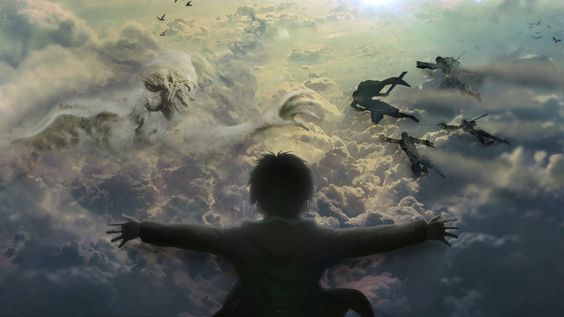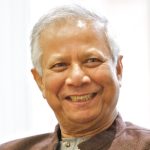Introduction of Attack on Titan
“Attack on Titan” (Shingeki no Kyojin), created by Hajime Isayama, has become a cultural phenomenon since its debut in 2009. The series has captivated millions worldwide with its intense storyline, complex characters, and thought-provoking themes. Set in a dystopian world where humanity faces extinction at the hands of gigantic humanoid creatures called Titans, the narrative transcends a typical action-packed anime. It explores deep philosophical questions about freedom, sacrifice, and human nature. Whether you are a seasoned fan or a newcomer, “Attack on Titan” offers something for everyone.
The Premise
The story of “Attack on Titan” revolves around the remnants of humanity living within three enormous walls that protect them from the Titans, colossal beings that devour humans. For over a century, humanity has lived in relative peace behind these walls, but everything changes when the Colossal Titan appears, breaching the outermost barrier and plunging the world into chaos.
At the heart of this disaster is Eren Yeager, a young boy who witnesses the destruction of his home and the brutal death of his mother at the hands of Titans. Vowing to exterminate every Titan, Eren, along with his friends Mikasa Ackerman and Armin Arlert, joins the Survey Corps, an elite military unit tasked with fighting Titans and uncovering the truth about their existence.
Themes of Freedom and Oppression
One of the central themes of “Attack on Titan” is the constant struggle for freedom. The Titans serve as both a literal and metaphorical representation of humanity’s oppression. They symbolize the constraints placed on individuals, societies, and even entire nations by external forces—whether it be fear, power, or manipulation. As the story progresses, we see that the true enemy isn’t just the Titans, but also the structures of control and manipulation embedded within human society.
Characters like Eren are driven by an innate desire to break free from these constraints. His journey is a quest for liberation, not just from the Titans but also from the walls that confine him physically and ideologically. As Eren’s perspective evolves, so does the audience’s understanding of the nuanced relationship between freedom and the cost of achieving it.
Moral Ambiguity and War
“Attack on Titan” thrives on its exploration of moral ambiguity. Unlike typical anime where there is a clear distinction between good and evil, the series blurs these lines, forcing viewers to question the righteousness of their favorite characters. Leaders make decisions that result in devastating consequences, and soldiers carry out actions that could be considered both heroic and monstrous, depending on perspective.
As the plot unfolds, the characters confront difficult choices that often involve sacrificing lives for the greater good. War, in the context of the series, is depicted as brutal, tragic, and full of moral compromises. Characters grapple with their own humanity, often finding themselves questioning their values and the weight of their actions.
The revelation of the world beyond the walls adds layers of complexity to the narrative, turning former enemies into allies and old friends into foes. This shift in dynamics compels viewers to rethink their assumptions about the characters and the larger political and ideological conflicts within the story.
Character Development
The character development in “Attack on Titan” is one of its greatest strengths. Eren begins as an impulsive, revenge-driven protagonist, but over the course of the series, his character becomes increasingly multifaceted. His transformation from a naïve boy to a morally complex anti-hero is one of the most talked-about evolutions in anime history.
Mikasa Ackerman, who initially appears as the stoic protector of Eren, grows into a powerful figure in her own right. Her loyalty to Eren, while admirable, also serves as a reflection of the emotional burdens she carries. She represents the conflict between duty and personal desire, often struggling with her role as both a soldier and a friend.
Armin Arlert, initially portrayed as a physically weak strategist, becomes a key player in humanity’s survival. His intellectual growth and his moral dilemmas provide a balance to Eren’s aggression and Mikasa’s unwavering dedication.
Other characters, such as Levi Ackerman, Erwin Smith, and Reiner Braun, also experience significant development, making them central to the show’s emotional impact. Their stories offer insights into leadership, sacrifice, and the cost of war.
The Power of Mystery and World-Building
“Attack on Titan” excels at world-building and maintaining an air of mystery. From the moment the series begins, viewers are introduced to a world shrouded in uncertainty. Who created the Titans? Why are they attacking humanity? What lies beyond the walls? These questions drive the narrative forward, keeping the audience engaged.
Isayama masterfully reveals information piece by piece, allowing the plot to unravel at a tantalizing pace. Every revelation, whether about the Titans or the human factions at play, adds depth to the world. The mysteries surrounding the Titans, the power struggles between different factions, and the hidden truths about humanity’s past all contribute to the series’ gripping tension.
Animation and Soundtrack
One cannot discuss “Attack on Titan” without acknowledging its breathtaking animation and powerful soundtrack. Studio Wit and MAPPA, the animation studios responsible for the series, have delivered stunning visuals, particularly in the dynamic action sequences. The fluid motion of the 3D Maneuver Gear used by the soldiers to battle Titans is nothing short of spectacular, adding a level of excitement and intensity that has become a signature of the show.
The soundtrack, composed by Hiroyuki Sawano, complements the animation perfectly. The blend of orchestral and rock elements heightens the emotional impact of key scenes, making moments of triumph, despair, and revelation even more poignant.
Conclusion
“Attack on Titan” is more than just a story about survival in a world overrun by monsters. It’s a reflection of the human condition—our desire for freedom, our capacity for both good and evil, and the difficult choices we make in times of crisis. As the series draws to a close, it leaves a lasting legacy as one of the most thought-provoking and emotionally charged anime of all time.
Whether you are drawn in by the action, the mystery, or the deep philosophical questions, “Attack on Titan” is a must-watch for anyone looking for a gripping narrative that challenges the very notion of heroism and humanity itself.


